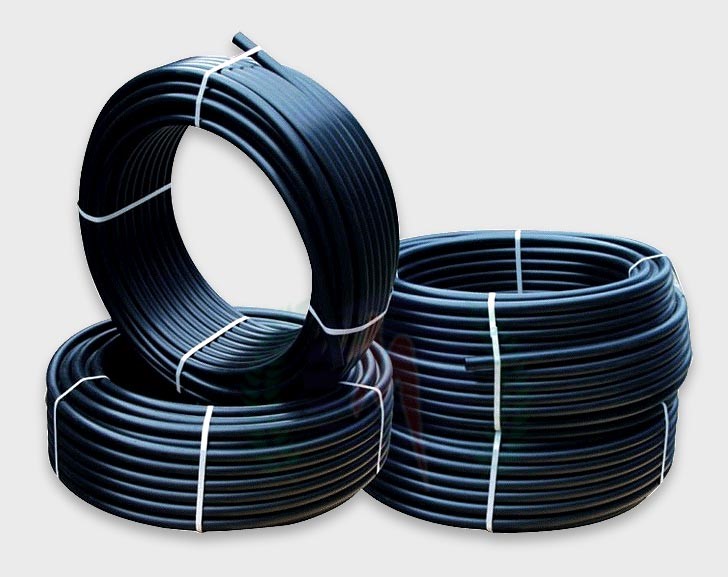Why Pipe Supplier American Plastics Midland Is the Top Choice for Contractors
Comprehending the Key Conveniences of HDPE Pipeline for Water and Wastewater Administration
Making use of HDPE pipeline in water and wastewater management offers many advantages that warrant consideration. Its extraordinary resilience and lengthy life expectancy make it a recommended option for many projects. Furthermore, the product's resistance to rust and chemical damages boosts its reliability in different atmospheres. Nonetheless, the benefits expand past simply longevity and resistance. Exploring its cost-effectiveness and ecological influence discloses also extra compelling factors for its extensive adoption in modern facilities
Remarkable Durability and Longevity

HDPE pipeline stands apart for its extraordinary sturdiness and longevity, making it a preferred choice in water management systems. Constructed from high-density polyethylene, these pipes can endure considerable pressure and anxiety, making certain trusted efficiency gradually. Their durable nature enables them to endure severe ecological conditions, consisting of temperature changes and dirt activities, which can create various other products to stop working.
The life-span of HDPE pipelines typically exceeds half a century, providing an economical option for districts and sectors alike. Additionally, the material's light-weight properties simplify setup, decreasing labor prices and timeframes. This toughness lessens the need for constant repair work or substitutes, further improving its financial appeal.
In water management applications, the reliability of HDPE pipelines suggests fewer interruptions and enhanced service continuity, making them important to lasting facilities development. The mix of longevity and long life solidifies HDPE's function as a keystone in effective water management options.

Resistance to Rust and Chemical Damages
While many products surrender to rust and chemical damage over time, HDPE pipelines display remarkable resistance, making them optimal for different water management applications. This strength originates from the molecular structure of high-density polyethylene, which is naturally non-reactive and does not corrode like steels or break down from exposure to harsh chemicals. Because of this, HDPE is very effective in atmospheres with hostile materials, such as wastewater systems that might consist of acids, bases, and organic solvents.
Additionally, HDPE pipelines can withstand ecological elements such as dirt acidity and saline conditions, further enhancing their viability for diverse applications (Pipe Supplier American Plastics Midland). Their ability to preserve structural honesty over time reduces the danger of leakages and failures, which is vital in guaranteeing the safety and integrity of water distribution and wastewater monitoring systems. The resistance to rust and chemical damages substantially adds to the general efficiency and durability of HDPE piping services.
Cost-Effectiveness and Economic Advantages
When taking into consideration the financial effects of water management systems, the cost-effectiveness of HDPE pipes comes to be evident. These pipes provide lower installment and upkeep costs compared to standard materials like metal or concrete. Their lightweight nature simplifies transportation and installation, leading to minimized labor expenditures. Furthermore, HDPE pipes show a lengthy lifespan, often exceeding half a century, which equates to fewer substitutes and long-lasting savings.
In addition, the resistance of HDPE to rust and chemical damage lessens the requirement for expensive fixings and replacements. The pipelines also sustain effective water flow, minimizing energy prices connected with pumping systems. By mitigating leaks and water loss, HDPE pipelines add to significant web link financial advantages for municipalities and sectors alike. On the whole, the initial financial investment in HDPE piping can generate significant economic returns over the life expectancy of the water view it now administration system, making it a prudent selection for sustainable framework development.
Environmental Sustainability and Lowered Influence

Convenience and Flexibility in Installation
Due to their distinct buildings, HDPE pipelines provide amazing flexibility and flexibility in setup, making them suitable for a wide variety of applications. Their light-weight nature permits less complicated handling and transportation, decreasing labor prices and installation time. HDPE pipes can be bent and formed to fit numerous surfaces and job demands, which is specifically advantageous in testing settings.
Additionally, their resistance to rust and chemical damages enables installation in varied setups without the requirement for specialized safety finishes. The capacity to fuse joints develops a continuous, leak-free system, improving the general integrity and dependability of the installation. HDPE's versatility also accommodates ground movement, decreasing the risk of damages in locations vulnerable to shifting soil. Generally, these qualities make HDPE pipes not only flexible however also a favored option for water and wastewater management systems.
Often Asked Concerns
How Does HDPE Pipe Contrast to PVC in Water Administration Applications?
HDPE pipeline offers superior versatility, resistance to rust, and durability contrasted to PVC. Its lighter weight helps with much easier installment, while its long lifespan lowers replacement prices, making HDPE a preferred selection in water management applications.
What Is the Life-span of HDPE Water Lines Under Typical Conditions?
Under normal problems, HDPE pipes can have a lifespan varying from 50 to 100 years. Their longevity and resistance to rust contribute to their long-term efficiency in different applications, making them a reliable selection for facilities.
Are HDPE Pipeline Recyclable After Their Solution Life?
Yes, HDPE pipelines are recyclable after their service life. Pipe Manufacturing Midland TX. They can be refined and repurposed into brand-new products, substantially minimizing environmental effect and promoting sustainability within the sector, making them an eco-friendly selection for piping services
What Is the Installment Process for HDPE Piping?
The setup procedure for HDPE pipes involves website preparation, trenching, pipe blend or mechanical joining, backfilling, and stress screening. Appropriate strategies guarantee a sturdy and reliable system for delivering water and wastewater effectively.
Can HDPE Water Lines Be Made Use Of for Both Potable and Non-Potable Water Equipments?
Yes, HDPE pipes can be utilized for both safe and clean and non-potable water systems. Their flexibility, durability, and resistance to rust make them ideal for various applications, making sure secure and efficient transport of water in various contexts.